One man, one vote
Many moons ago, my now departed father taught me the principle of Western democracy being that each of us have one vote to give, and by the end of the evening of an election, the party with the most votes wins - ‘one man, one vote’.
And that impression lasted for probably a decade, until I watched a skit on ‘Alas Smith and Jones’ featuring Griff Rhys Jones, dressed as a dictator, adding ‘… and I am the man with the vote’. Of course, when he delivered that line to Mel Smith, he meant it as a joke.
In the world of geopolitics, it’s more or less exactly the same… except that it isn’t a joke.
-
When we venture outside the sphere of national politics and look the the global, international organisations, indeed voting is somewhat more complicated, for a variety of reasons - including practicality, the difference in political systems, differences in voting, levels of corruption, expected time for results to come in… in fact, were we to have a truly, global vote, chances are that we’d still be counting votes for days post-event. Oh wai-
No, the system is setup to deliver a fairly rapid result, so that our alleged representatives can go sell our souls to satan in exchange for a beachfront property.
The United Nations, for instance, utilise a voting system granting each nations the grand sum of a single vote. This, obviously, tend to favour smaller nations, and is thus a system clearly ripe for abuse, also because there are large differences in prosperity beween said nations. Consequently, large gifts generally appear to be the norm, rather than exception, and upsets are rarely upsetting. One of those not-upsets took place in 2016, when Tedros Adhanom Ghebreyesus beat the clear favourite, David Nabarro, to the WHO top position of Director-General. But that wasn’t the first time we witnessed clear vote irregularities, in fact, rumours were aplenty relating to Margaret Chan’s 2008 WHO re-election campaign, during which it was strongly suspected China pushed their intent through systemic bribery of typically poor, African nations.
Of course, the UN VETO does exist, however that relates to the security council only - no, if you wish for your candidate to win the WHO top spot, you better get out that wallet.
Of course, just a few decades ago, there was no genuine competition in that regard either, as Western nations easily could outbid any rival bribe. However, with the emergence of China, that all changed.
-
Within the framework of the United Nations, we also have the Bretton Woods institutions - The International Monetary Fund (IMF), and the World Bank. Now, I could spend hours talking about the World Bank, given that it’s heinously corrupt to put it lightly - something also well documented by John Perkins’ succesful book; ‘Confessions of an Economic Hit Man‘.
Yes, yes, I know. ‘Hay guys it’s conspiracy theory’ - well, you know… I’ve spent months going through World Bank papers, and at this stage that book appears fairly tame in comparison to some of the things they’ve done - on record.
What sets the Bretton Woods institutions apart from the United Nations is the voting structure differential. Where each nation is granted a vote under the UN system, the World Bank (and IMF) weighs the relative votes, and consequently, some pigs are more equal than others.
To be completely honest, I don’t necessarily disagree here. Were votes not weighed, you’d in an instant see poor nations gang up on the wealthier and ensure a tragedy of the commons, or rather, you’d see the United Nations and all global organisations come to a rapid end, as the wealthier would see no reason to stay.
That’s what always happens in envy-driven socialist states.
As an example of the voting structure put into place by the World Bank, were we to combine -
The United States (15.75% of voting power)
+ Japan (7.15%)
+ Germany (4.25%)
+ UK (3.90%)
+ France (3.90%)
+ Canada (2.54%)
+ Italy (2.48%)
+ Spain (1.91%)
+ The Netherlands (1.89%)
+ Australia (1.37%)
We end up with 45.31% of votes. Consequently, throw in Belgium, Scandinavia, and Switzerland, and all you have to do, is lean heavily on Mexico and you’re there.
And that’s what the developing world has a problem with. Never mind who actually pays the bills, because I’m sure you’d see somewhat of an overlap in this regard.
Furthermore, in order to change the constitution of the World Bank, you need 85% of votes - a percentage you will never reach without the support of the United States, as they sit with 15.75% of the vote total. The IMF works much the same, but with minor differences in voting power.
-
But both Bretton Woods institutions are somewhat child’s play in comparison to the Bank for International Settlements. I have covered the BIS on a number of occasions, first here -
The Bank for International Settlements
On especially all matters CBDCs - all roads leads to Basel. - The BIS has always been of interest to me, ever since I learned of their existence. Primarily in the early days, as it was specifically mentioned by Carroll Quigley’s “Tragedy and Hope”, but more recently, because the IMF and World Bank were supposed to replace it in 1944. In fact, all of their…
Then here -
Central Bankers & the Bretton Woods Committee
For every transaction, you have two parties; a seller - representing supply, and a buyer - who represents demand. This very simple concept applies regardless of to what the transaction relates. And that principle applied to even money itself. Sure, the seller and buyer might be somewhat different, as these relate to
And finally here, in the call for a ‘Declaration of Interdependence’ which is nothing short of veiled communism -
Communism: Declaration of Interdependence
There’s only 63 until the next global ‘interdependence day’. So, put the date in your calendar. September 12, 2023
-
The BIS is infamously secretive. In fact, should you attempt to dig out the voting structure, you'd find that it takes hour upon hour, scraping out bits of information related to share allocations through a range of separate reports, where often said allocations are denominated in local currencies, or might even be merged with other asset. And the BIS has not supplied a list since 1939, and that’s not a mistake. In fact, here’s an early list relating to voting power. It’s from 1942, when the Bank for International Settlements was debated during WW2 in the British Parliament.
Legitimately, this postdates the final release of this information put out by the BIS.
Regardless, I set to work. attempting to reconstruct what little information I could find. Google, Yandex, Baidu, Incognito, VPN, … I spent rather a few hours, and managed to scrape around 10 nations out of 60. But it was tedious, painstaking, and arduous, boring work.
So imagine my shock when I suddenly stumbled upon a paper which had done all the hard work for me already.
The short story is that just a smidgen short of 75% is controlled by Europeans. That’s how much of the voting power the central banks in European nations control, so were you to take -
United Kingdom (8.5%)
+ France (8.5%)
+ Germany (8.5%)
+ Belgium (8.5%)
+ Italy (8.5%)
+ Switzerland (2.8%)
+ Sweden (2.8%)
+ Netherlands (2.8%)
Takes you to 50.9% already. You don’t even need to involve the United States or Japan. You can even push legislation through, should you not have the support of two major European central banks - without, say, Italy and Germany, you still land quite comfortably at 74 - 2x8.5 = 57%. It is borderline impossible for ‘new money’ to threaten old, in short.
The bottom line here is that the Bank for International Settlements is absolutely, and unquestionably under European control.
Of course, when I say ‘European control’, I don’t mean you or I going to an urn - no, these voting blocks are for central bankers, and those use mere mortals do not get to vote for. Of course, back in the day, the claim was that they were apolitical entities. However, with the Brexit debate, that claim can be properly dismissed once and for all. And since then, they’ve only chimed in more frequently. They are absolutely straddling beyond their mandate, regardless of how ‘noble’ it might be.
The total number of BIS shares stands at 568,125. And upon entry to the ‘club’, new joiners are offered to buy… 3,000. Yes, really. Nations that join are offered an 0.5% stake in the BIS, regardless of size of nation. That in particular appear somewhat at odds with economic reality when it comes to a few nations, notably… Brazil… Russia… India… China… surely, you can see where I’m going with this?
Legitimately, BRICS have a combined stake less than that of Austria, Bulgaria, and Denmark combined. Yet, they have how large a part of the global energy reserves?
All of this goes to explain a few things - starting with BRICS itself. But beyond, a requirement to become a member of the BIS cartel, your central bank must be independent. That is the case, but with one major exception. China. And on December 8, 2021, China reined in their central bank. No, the Bank of China is very much below the CCP in the hierarchy, something which should immediately dismiss China from 'the club’.
That, however, did not happen. In fact, a few months down the line, the BIS appointed a former PBOC deputy governor a senior role within the BIS.
Could it be, just perhaps, because they didn’t want China to run off and launch a competitor? Because ultimately, there was precisely 0% likelihood that China would be able to change the direction of the institution anyway, given BRICS’ relatively low voting power.
-
And that’s where I am leaving this tonight.
There’s more to this story. Because the Western nations also play power games inside these institutions, in fact, David Nabarro likely was the US/UK 2016 WHO lead candidate because of the excellent work, pulling off the UNSIC trick in 2009.
And we also saw another attempt from China’s side in 2016, when they tried hijacking critical future infrastructure with their ill-fated ‘World Organization of Governance & Competitiveness‘ at the United Nations in 2016.
-
And finally, before we move on, it might be prudent to consider what will replace the existing power structure, should the current fall.
Good night.



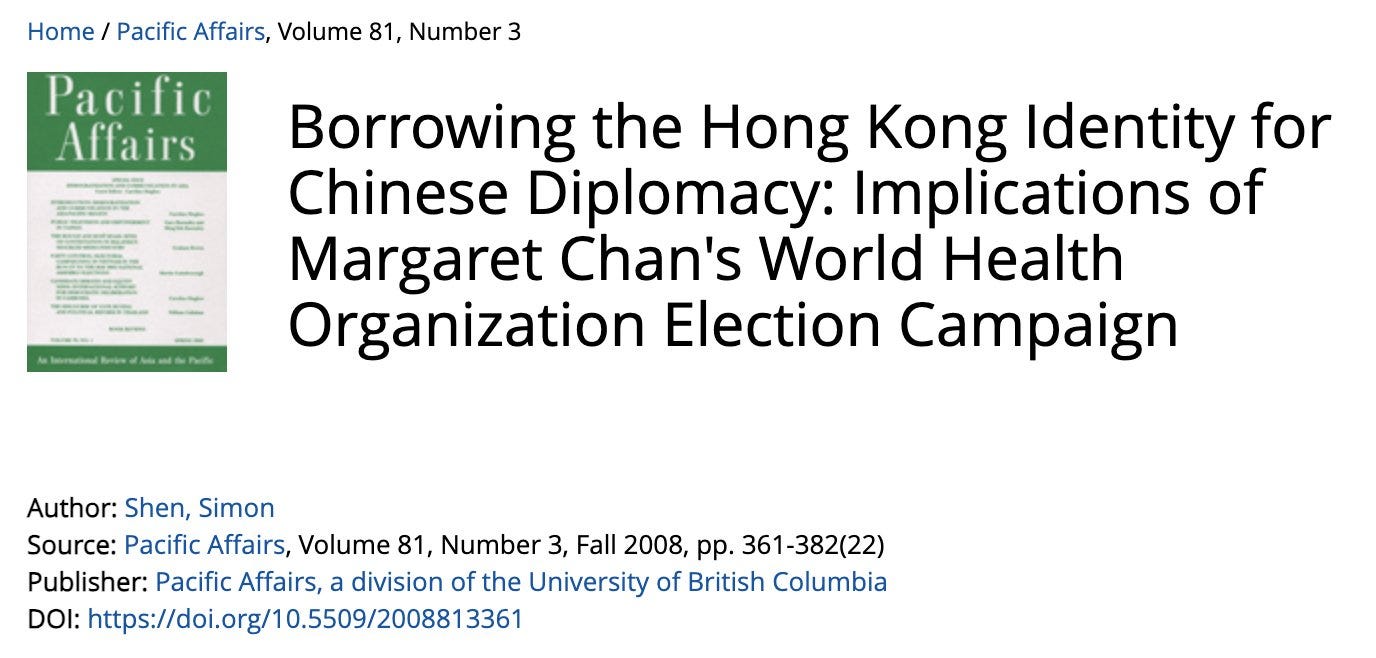

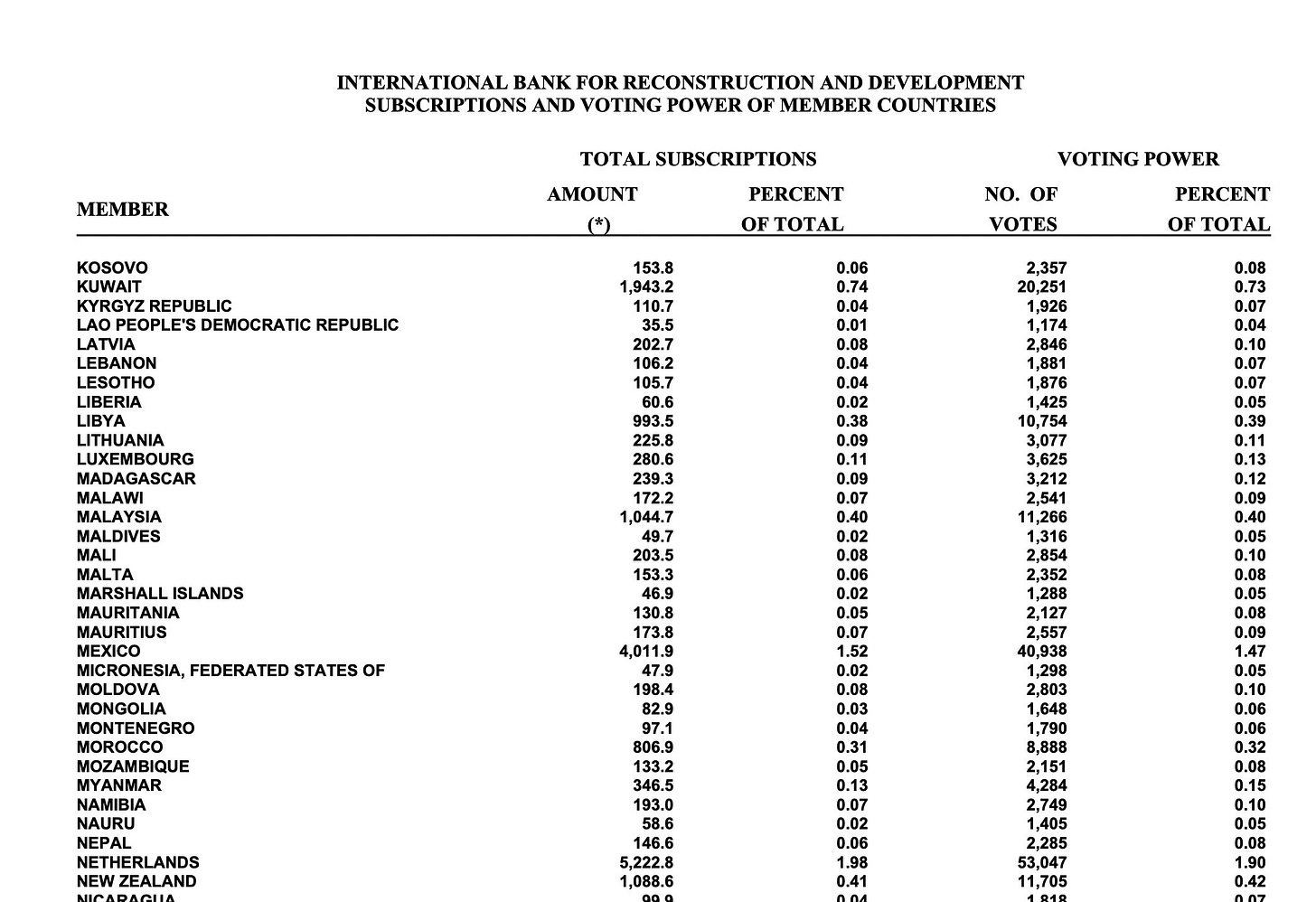
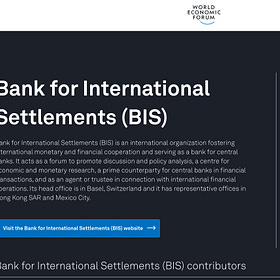





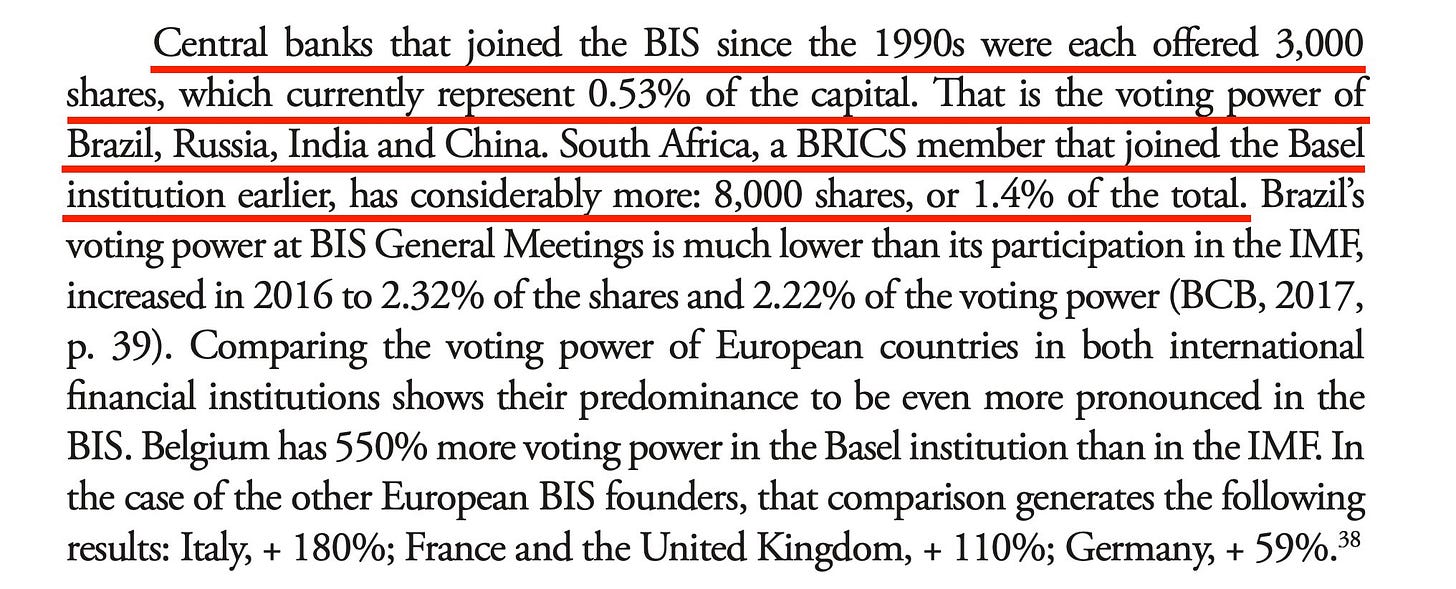


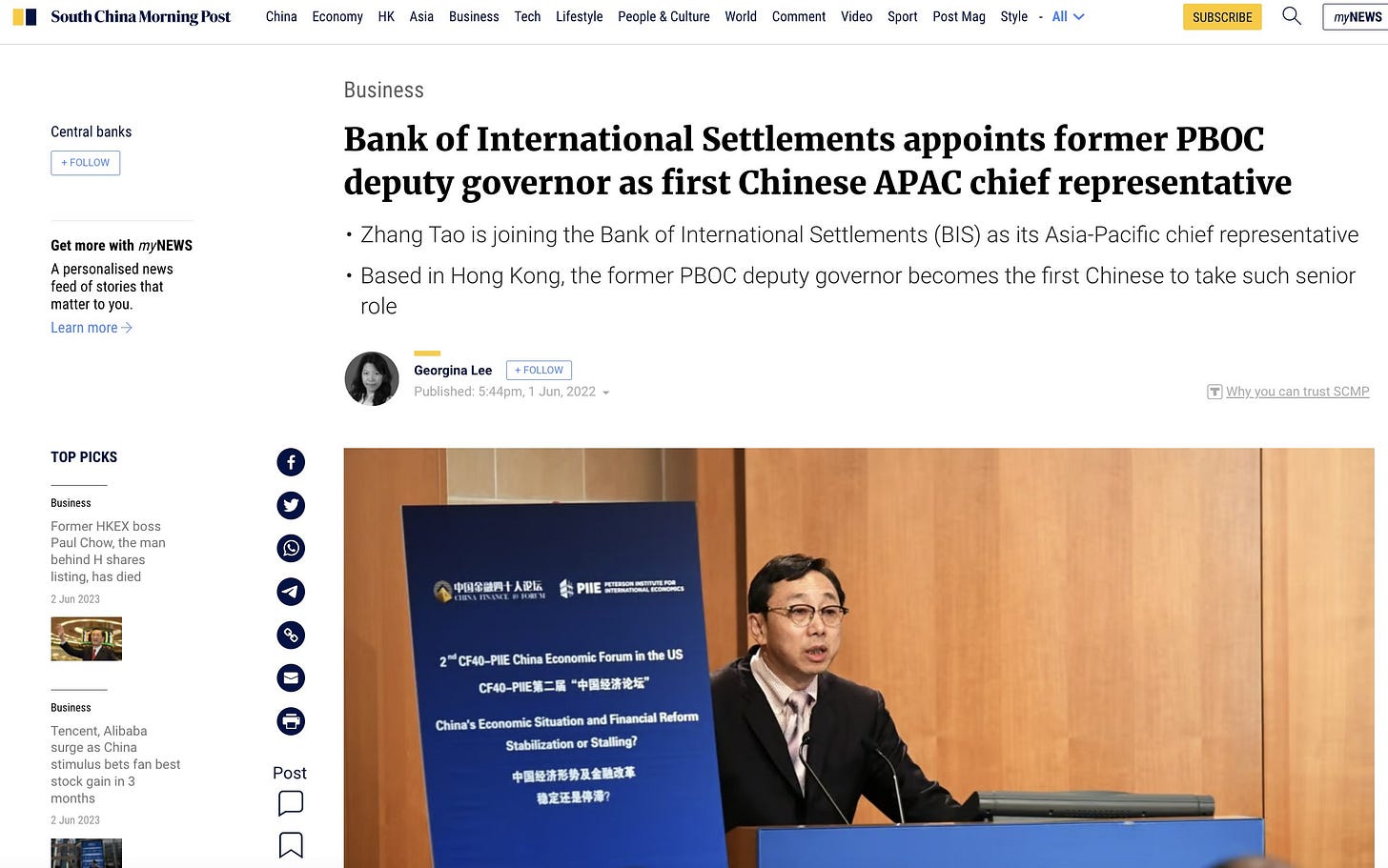

Corporations Control Our Governments: Aaron Bastani meets Matt Kennard Downstream on YT